Shanghai is a popular gateway city to start a Tibet tour. While Kathmandu is the best place to finish your Tibet tour. This tour starts from Shanghai, travel westward to Lhasa, then head overlanding to Kathmandu, and brings you the best travel experience in Tibet. Before leaving for Tibet, you will make a stopover at Chengdu where you will stay a full day to visit Giant Panda, Wenshu Temple, Jinli Street. Of course the most highlighting part is the overlanding travel from Lhasa to Kathmandu on which you will see and experience the essence of Tibet. Gyirong Port has been opened for foreign travelers. From 30 August, 2017, foreign travelers can enter Tibet from Nepal or leave Tibet for Nepal at Gyirong Port again.
Highlights of this tour:
- Witness how the old tradition and modern fashion meeting together in Shanghai by visiting the classic Yu Garden, quiet Jade Buddha Temple, international the Bund, beautiful skyscrapers...
- Have an exciting visit to meet the most adorable animal in the world - Giant Panda in Chengdu Research Base of Giant Panda Breeding;
- Overlanding adventure from Lhasa to Kathmandu via Gyantse, Shigatse and Mount Everest to experience authentic Tibetan culture and enjoy breathtaking plateau landscapes which you can only see on the Roof of the World.
- Finish your adventure at the China-Nepal border where you can easily transfer to Kathmandu, the capital of Nepal.
Tour Brief Information
- Tour price: from
- Tour code: TD-CTT-11A
- Tour Type: Private Customizable Tour Package
- Destination: Shanghai / Chengdu / Lhasa / Shigatse / Gyantse / Mount Everest / Gyirong / Kathmandu
- Duration: 11 days and 10 nights
- Departure: Flexible
- Travel Theme:




- Best Time:



- Physical Level
- Tour Pace
- Max Altitude
5,200m
- Itinerary Details
- Price Guide & Booking
- Trip FAQs
- Reviews
- Make an Enquiry
Your tour - at a glance
Day 1~3 Arrival & Shanghai Tour
Day 4 Chengdu City Tour
Day 5~7 Lhasa City Tour
Day 8~10 Lhasa - Gyantse - Shigatse - Everest
Day 11 Gyirong - Kathmandu
Itinerary Details - Day by Day
Day 1 Shanghai Arrival
Welcome to Shanghai, the China's most cosmopolitan city. Your private tour guide and driver will meet you at the airport or train station, and escort you to your hotel in downtown. The rest of the day is free for you to have fun and relax.
Day 2 Shanghai ( B, L )
Today, your wonderful Shanghai journey starts with a visit to Shanghai Museum, resembling an ancient Chinese Ding vessel with round dome and square earth base which symbolizes the Chinese philosophy. It is one must-see attraction in Shanghai famed for its countless treasured cultural collections, including bronze, ceramics, paintings, calligraphy, jade, seal and some other shining exhibits, tracing back to as long as 5,000 years ago. This charming museum will guide you through the craft of millennia as well as the pages of Chinese history.
Your next stop in Shanghai is Yu Garden. The private garden built in Ming Dynasty fully shows the architecture and design style of classical Chinese gardens with delicate pavilions, clear ponds and artificial hills. Next, you will walk leisurely through the Yuyuan Bazaar which is full of tasteful local snacks and elaborate traditional Chinese handicrafts and art works, and locates right next to the Yu Garden.
After exploring Chinese old history and classical garden architecture in Shanghai, you will drive to Lujiazui and take a look at Shanghai at present. If the weather is clear, ascending to the tallest skyscraper in Asia – Shanghai Tower and overlooking from the view deck on the 126th floor, a prosperous and majestic Shanghai will reveal its true face in front of you.
Then, stroll along Nanjing Road, you will be surprised how this paradise for shoppers satisfy your shopping demand. At the east end of the road appears the famous Bund, the symbol of Shanghai situated in the river bank of Huangpu River. Walk along the Bund, feel the perfect fusion of Chinese culture and Western culture, and seize the stunning Shanghai skyline with your own eyes.
Optional Recommended Night Activity: take an enjoyable ship cruise on the Huangpu River to enjoy the beautiful night view of Shanghai.
-
 Witness the past and present of Shanghai in the Bund
Witness the past and present of Shanghai in the Bund
-
 Night View of Yu Garden
Night View of Yu Garden
-
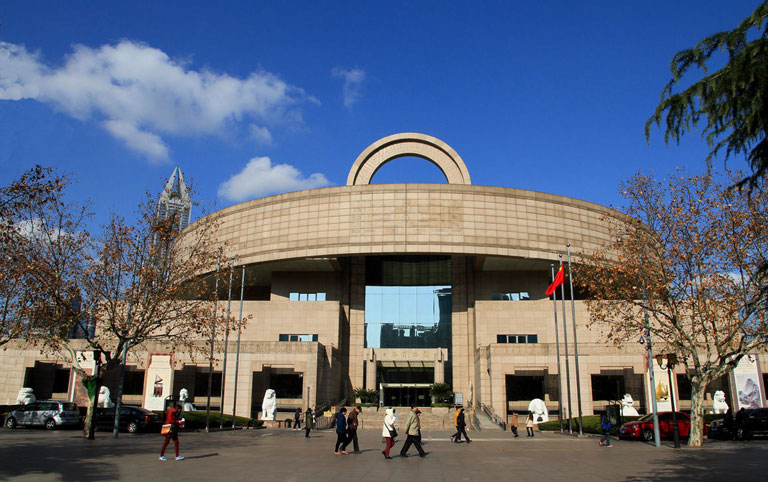 Appearance of.Shanghai Museum
Appearance of.Shanghai Museum
Day 3 Flight to Chengdu from Shanghai ( B, L )
The first place to visit for today is the Shanghai Urban Planning Exhibition Center where multiple media, such as photography, models, videos, machines, etc, are used to help visitors to learn about the past history, present facts and future plan of Shanghai. Then come to the next site - Jade Buddha Temple which has the largest jade Buddha in the world and numerous religious artifacts, ancient statues and Buddhist scriptures. It is a pure land hidden in the crowded and modern metropolis. In this Chinese Zen-Buddhist temple, you can take a view of the featured Song-style architectures and watch the people praying - quite distinctive from the atmosphere of Tibetan monasteries you will see.
In the afternoon, you will go to catch your flight to the hometown of Giant Panda - Chengdu. Upon arriving at Chengdu Shuangliu International Airport, you will be met by your local tour guide, and then drive to your downtown hotel in the City. After the hotel check-in, you are free to take a rest or explore around on your own.
Optional Activity: go to enjoy an authentic Sichuan Cuisine dinner at a local restaurant.
-
 The Blueprint of Shanghai Shown in Shanghai Urban Planning Exhibition Center
The Blueprint of Shanghai Shown in Shanghai Urban Planning Exhibition Center
-
 Statue in Jade Buddha Temple
Statue in Jade Buddha Temple
Day 4 Chengdu ( B, L )
Chengdu has three famous features - Giant Panda, History and Leisure Living Pace. Today, you will go to explore these tree features one by one. First is to visit the lovely Giant Pandas in Chengdu Research Base of Giant Panda Breeding, which is the No. 1 thing to do in Chengdu. You will leave your hotel early and drive about 30 minutes to the panda base so that you can catch up the great moments of pandas, such as feeding, playing, climbing tree, etc. There are different enclosures for pages of different ages, such as all around to see baby pandas, 1 year-old pandas, teenage pandas, and older pandas. Beautiful walking paths will lead you to visit the enclosures from one to next. Enjoy the happy time with pandas.
The second place to visit is the sacred Wenshu Temple which is hidden peacefully among the modern mansions. This temple is the most popular Buddhist temple in Chengdu region. It has beautiful traditional ancient architecture. The atmosphere is calm and quiet, some people are praying. There is a little garden and the monastery is very colorful and decorated.
Lastly, you are going to explore the leisure living peace of locals at Renmin Park and Jinli Street. Renmin Park, or People’s Park is the place for locals to go for a relaxing walk, meet friends, or have a cup of tea. While Jinli is the “street of tourists”. You can wander on the traditional old street to absorb the special atmosphere of Chengdu, taste local snacks, watching a performance, etc.
Optional Recommended Night Activity: watch an fascinating show of traditional Sichuan Opera & Face Changing Performance in a local theatre.
-
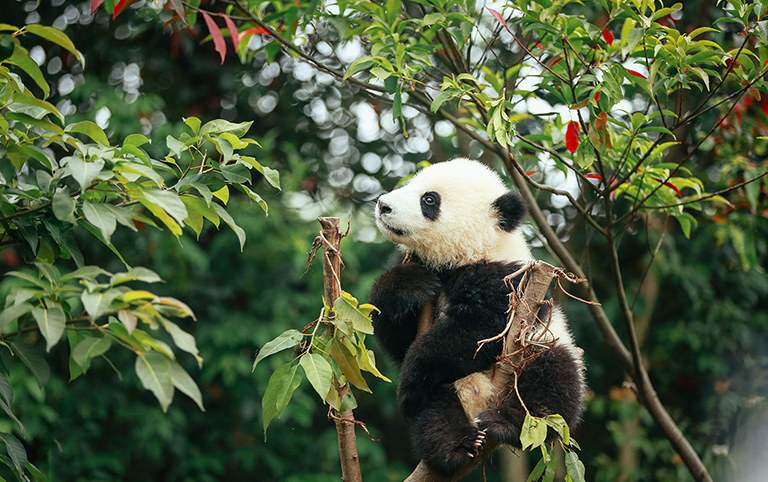 This giant panda seems thinking something deeply
This giant panda seems thinking something deeply
-
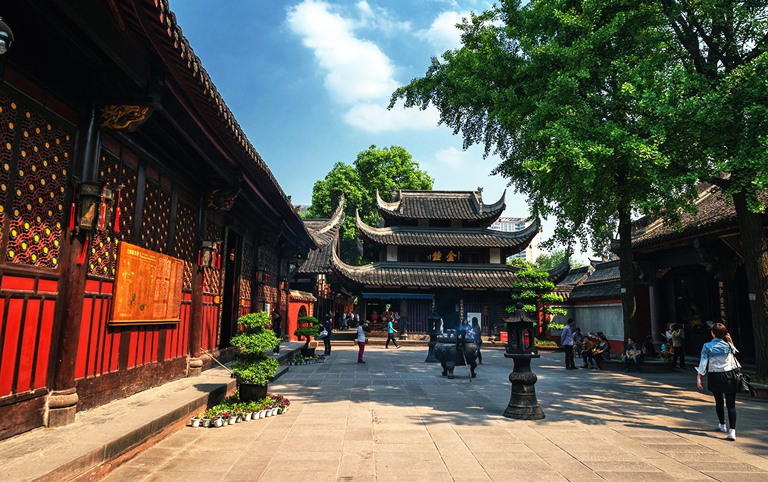 Wenshu Temple - Home to Buddhist Association of Sichuan
Wenshu Temple - Home to Buddhist Association of Sichuan
-
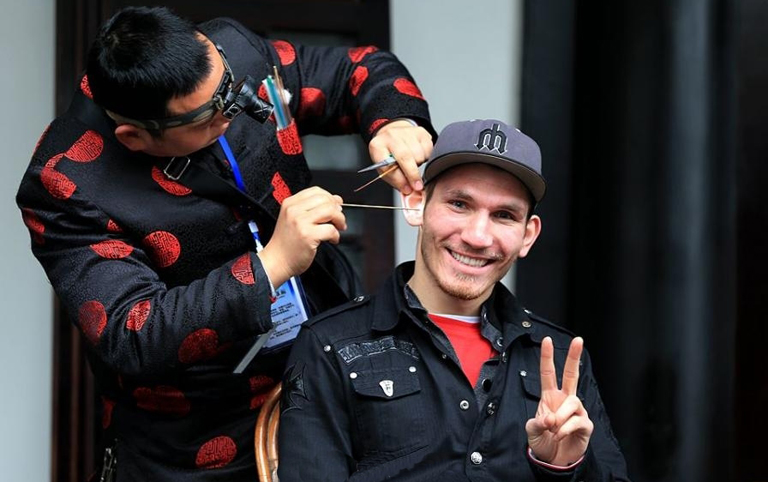 Enjoy traditional Ear Treatment
Enjoy traditional Ear Treatment
Day 5 Take Flight to Lhasa from Chengdu ( B )
Today, you will be free until your local guide escorts you to the airport for your flight to Lhasa (about 2 hours’ flight). Upon arriving at Lhasa Gongga Airport, you will be picked up by local tour guide at the airport hall, then be escorted to your hotel in Lhasa city in a private vehicle. The rest of the day is free for you to explore the local areas and acclimatize yourself to the air, temperature and high altitude of Lhasa.
High Altitude Acclimation Tips:1) go for some leisure walking to acclimate the high altitude but avoid strenuous activity after arrival; 2) you'd better not have bath, in case of catching a cold; 3) drink more water, and have some fruit; 4) have a good rest.
Day 6 Lhasa ( B )
Start today’s Lhasa exploration with an exciting visit to the landmark - Potala Palace which is regarded as one of the most beautiful architectural building in the world. You will climb up the palace along the zigzag stone paths with white-and-red walls to the top of the palace where you can not only appreciate the exotic Tibetan-style architecture, but also get a great view of Lhasa’s urban areas, then walk into the inner space of Potala Palace to explore the stately chapels and learn about the history of the palace.
Continuing your exploration, you will then get to Jokhang Temple which is considered as the spiritual heart of Tibetan Buddhism. Each day, there are thousands of pilgrims coming from different places in Tibet to the temple to worship to the Buddha. This temple is also known as the “house of Buddha” because it keeps the precious Jowo Rinpoche, the life-sized (5 foot/1.5m) image of the Shakyamuni at the age of 12. The last site for today’s exploration is the famous Barkor Street. It is a circular and wide street encircling the Jokhang Temple. The local people like to walk on the street for several circles usually in the late afternoon as a daily tradition of pilgrimage. The street also has many shops selling a wide variety of traditional Tibetan goods, religious items and handcrafts.
Tips of today: 1) there are 1,080 steps up to climb to the top of Potala Palace, so don’t walk in a rush, which may cause high altitude sickness; 2) taking photos is not allowed inside the palace; 3) today you will be mainly outside, please bring some water, a hat, sun cream, and sun glasses with you.
-
 Sven explored Potala Place with Tibet Discovery (February, 2017)
Sven explored Potala Place with Tibet Discovery (February, 2017)
-
 Entrance of Jokhang Temple with Pilgrims Praying
Entrance of Jokhang Temple with Pilgrims Praying
-
 Smiling Little Lama
Smiling Little Lama
Day 7 Lhasa ( B )
After breakfast, you will firstly go to visit the beautiful Norbulingka which used to be the former summer palace of Dalai Lamas in the ancient time, and now is a public park. It is famous for its Potrang, the private palaces of former Dalai lamas with grandiose Tibetan architecture style. Next, drive several kilometers to the western outskirts of Lhasa to visit Drepung Monastery. Drepung, in Tibetan, means “prosperity”. Since its establishment, Drepung Monastery has always been one of the most important Buddhist monasteries in Tibet. In its heyday, there were more than 10,000 monks lived and studied in the monastery. Throughout its history, many important and famous Tibetan leaders used to study here, especially the Dalai Lamas. So Drepung Monastery is also respectfully known as the “Mother School of Dalai Lamas”.
In the afternoon, you will be taken to another famous monastery in Lhasa - Sera Monastery. It is famous for the spectacular “Buddhism Debating”. As a daily routine, the monks gather in a courtyard, and debate on the Buddhist doctrines with supplemented gestures, which is thought to be helpful to facilitates better comprehension of the Buddhist philosophy to attain higher levels of study. After enjoying the "Buddhism Debating", you will be transferred back to the city. The rest time is your own free time to rest.
The Etiquette of Visiting Monastery: 1) you shouldn’t wear short and uncover shoulders; 2) taking off your sunglasses and hat before entering the chapels; 3) taking photos is usually not allowed inside the chapels.
-
 Sera Monastery Is Famous for Its Buddhism Debating
Sera Monastery Is Famous for Its Buddhism Debating
-
 Six-letter Mantra Rock Painting
Six-letter Mantra Rock Painting
-
 Enjoy the bright flowers in Norblingka
Enjoy the bright flowers in Norblingka
Day 8 Lhasa - Shigatse / 360km, About 8hrs' Driving ( B )
Today, you will leave Lhasa and drive about 8 hours to Shigatse, the second largest city in Tibet. It may be a long journey, but there are many things to do along the road. The first site you will reach is the holy Yamdrok Lake (altitude: 4,400m). As the largest fresh lake in the northern of the Himalaya Mountains, it spreads about 675 square meters from south to north, like an eardrop lying in the arms of snow-capped giant mountains. Viewing from a distance, you can see fertile pastures full of yaks and sheep, and some small Tibetan villages along the lakeshore. Keeping driving not so far from Yamdrok Lake, you will see the imposing Karola Glacier (altitude: 5,045m) towering aloft on the right side of the road.
Continuing your trip, you will get to the historical city of Gyantse. Feel hungry? Have a good lunch in the town, then go to visit the mysterious Palcho Monastery (altitude: 4,040m). The monks and tradition of three important sects of Tibetan Buddhism - Sakyapa, Zhalupa and Gelukpa, peacefully coexist in this monastery. Its Kumbum, which is 35 meters high and has 76 small chapels with hundreds images of Kriyatantras , is believed to be the largest such structure in Tibet.
After the Gyantse sightseeing, keep drive about 3 hours, you will arrive at your hotel in Shigatse (altitude: 3,800m). Have a good rest!
Tips of today: 1) wear warm clothes to prevent from cold and wild; 2) pack some food and drinks with you because you will spend much time on the road.
-
 Charming Palcho Monastery
Charming Palcho Monastery
-
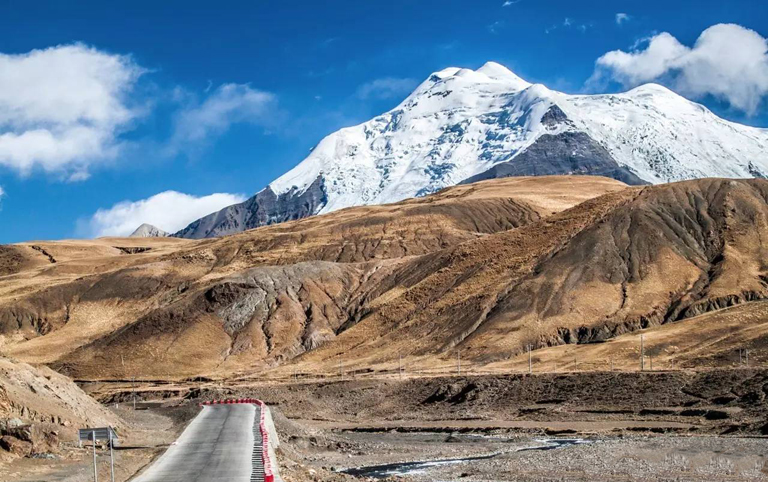 Karola Glaceier shines a brilliant white in the sunlight
Karola Glaceier shines a brilliant white in the sunlight
-
 Yamdrok Tibetan Stone Marks
Yamdrok Tibetan Stone Marks
Day 9 Shigatse - Mount Everest / 350km, About 7hrs's Driving ( B )
Today, before you driving Mount Everest, you will firstly take a visit to the official seat of Panchen Lama - Tashilhunpo Monastery which is also the largest and most influential Gelug Monastery in Shigatse prefecture. Here you will see a giant statue of Future Buddha, the largest one of its kind on earth ( 26.2 meters high and 11.5 meters wide ), decorated with precious pearls, turquoises, corals and ambers.
Then, you will leave Shigatse for the final destination of your Tibet trip - Mount Everest. Though being a long driving of about 7 hours, but the views along the road are stupendous. In clear days, you can see the clear face the Himalaya range including several famous peaks over 8,000 meters, such as Makalu, Lhotse, Gyachung and Cho Oyu. When you finally get to the Rongbuk Monastery, and get the first sight of the mighty Everest, you will immerse in a solemn ethereal mood and find all the efforts you have made along the long way are not in vain. Located about 5100 meters above the sea level, Rongbuk Monastery is the highest monastery in the world. It is the best location to take some great photos of the front face of Mount Everest. The rest of today is free for you to visit the Rongbuk Monastery and explore surrounding landscape.
Accommodation: if you visit Mount Everest during off season (November to April), you will accommodate at Rongbuk Guest House near the Rongbuk Monastery; if you visit Mount Everest during the peak season (May to October), you will accommodate at the Tibetan Tents Camp which is only run between May and October by local Tibetans. It is near Rongbuk Monastery as well. Please note that the accommodation at both places is very simple and basic, only dorm beds with communal squat toilets are available. Duvets, heated blankets and hot water will be provided, and you are suggested to bring your own sleeping bag and toilet paper. There is no running water, sinks or showers. The dining room just offer basic breakfast and dinner without menu. Remember to dress warmly all the time.
Tips of today: 1) currently Everest Base Camp is not open for tourists for environmental protection and the Everest landscape can be also enjoyed at Rongbuk Monastery - closest place to Mount Everest tourists can reach; 2) the vehicles and buses can only escort travelers to the Parking Lot which is about 20km away from Rongbuk Monastery, and then you need to take a 30 minutes' scenic park bus there; 3) the Everest altitude marker, a tablet reading "Mt. Qomolangma Elevation Measurement" has been transferred near Rongbuk Monastery and you can take a photo to commemorate your wonderful adventure tour; 4) bring a warm coat for low temperature in Everest and avoid strenuous activity to prevent from high altitude sickness.
-
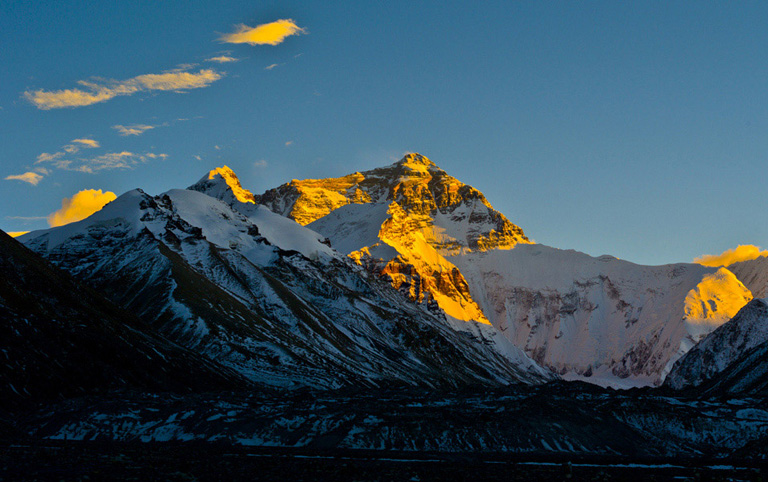 Sunset on Mount Everest
Sunset on Mount Everest
-
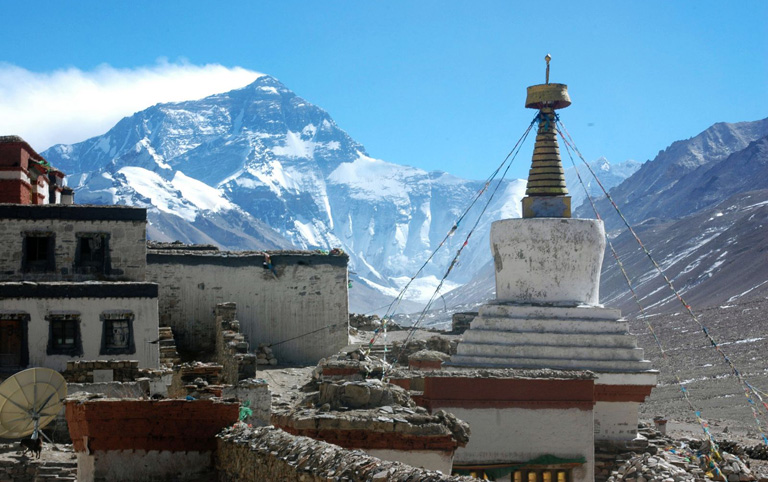 Viewing Mount Everest from Rongbuk Monastery
Viewing Mount Everest from Rongbuk Monastery
-
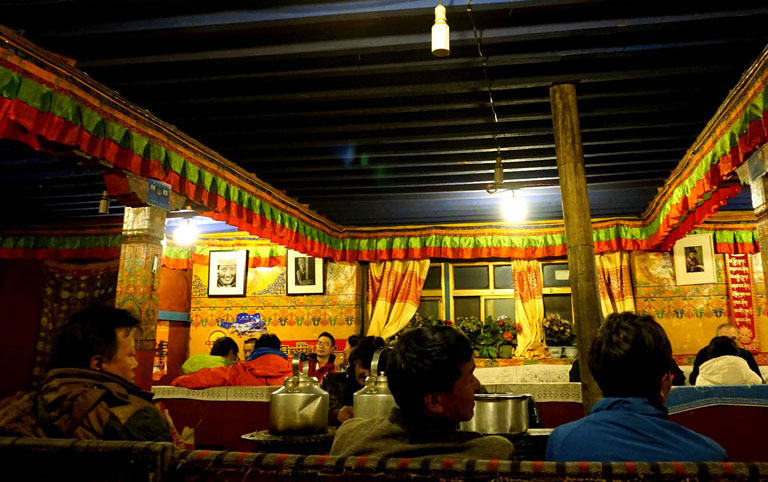 Dining Room in Rongbuk Monastery Guesthouse
Dining Room in Rongbuk Monastery Guesthouse
Day 10 Everest - Gyirong Town / 370km, About 8hrs' Driving
Wake up early to enjoy the marvelous sunrise on the peak of the world from Rongbuk Monastery. The top part of the Mount Everest is always covered by snow all the year round, and when the sun shines on the mountain, the peak is like a giant white pyramid, which is one of the most famous sceneries of Mount Everest. In bright days, you can also see a wisp of cloud hanging above the top of Mount Everest. It flies eastward in the fast western wind just like a flapping flag. This unique phenomenon is the spectacular “Cloud Flag”. The cloud will change from surging waves into a thin cooking smoke or from galloping steeds into the mysterious veil of a goddess.
Till now your Mount Everest adventure is about to end. The rest of today is to drive to Gyirong Town. The views along the road are stupendous. In clear days, you can see the clear face of Shishapangma Peak and enjoy the beautiful view of Pekutso Lake.
Accommodate at Gyirong Town.
Tips of today: 1) the sunrise usually starts around 6:30 am to 7am on Mount Everest; 2) keep warm all the time.
-
 Mount Everest Flag Clouds
Mount Everest Flag Clouds
-
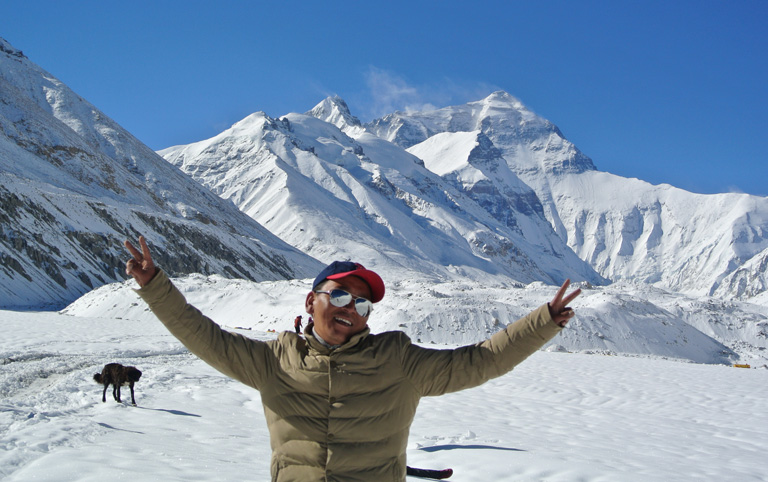 Our Tibetan Guide on Mount Everest
Our Tibetan Guide on Mount Everest
Day 11 Gyirong - Kathmandu / 185km, About 7hrs' Driving
Today, drive about 25 km to Gyirong Port at China-Nepal border. Tour ends! The rest of today is free on your own to transfer to Kathmandu or other destinations in Nepal. Kathmandu is only about 160 km from Gyirong Port, but remind the road condition is not as good as Tibet roads. It usually takes more than 6 hours to drive to Kathmandu from Gyirong Port because the road is narrow and bumpy, and buddy in rainy season.
Useful Trip Notes
-
- 1. Tibet Permits Guaranteed
To travel in Tibet, all Non-Chinese passport holders need to have a Tibet Travel Permit which is issued by Tibet Tourism Bureau in Lhasa. And only Chinese travel agencies like Tibet Discovery can apply for the permit on behalf of tourists. You must obtain it before your tour starting because the permit will be checked when you board your flight/train to Tibet. Traveling with Tibet Discovery, you don't have to worry about the complicated procedures of Tibet Travel Permit application. All you have to do is to confirm a tour package with us and send us your passport and Chinese visa copies at least 15~20 days in advance before your tour, then we will take care of all the rest things. Once the permit is issued, we will deliver to your address in China, such as your hotel, local travel agency, etc.
-
- 2. Available Months to Visit Tibet
Generally speaking, April to October is the best time. July and August are the peak season and rainy season. It is usually snowy and cold in winter, which is not suitable for visit Mount Everest, Namtso and Mount Kailash regions. While other places such as Lhasa, Gyantse and Shigatse are suitable for travel all year around. The temperatures in daytime and night differs a lot, usually 5~15℃ in the daytime and -5~0℃ in the night, so please wear accordingly.
-
- 3. High Altitude Sickness
The average altitude of Tibet is about 4000 meters above the sea level (Lhasa: 3700m; EBC: 5200m; Namtso: 4718m). You may suffer a bit from High Altitude Sickness in the beginning days of your Tibet trip if you haven’t had rich high plateau travel experience. But don’t worry too much, the high altitude can be acclimatized usually in 2~3 days. Our suggestion is to take a physical examination and get suggestions from your doctor, and also bring some medicines to prevent from High Altitude Sickness before your trip. While in Tibet, you should keep warm all the time, avoid strenuous activities, drink more water and eat more vegetables and carbohydrates. You’d better not take showers during the first two days after your arrival in Tibet. If you don’t feel well, get help from your tour guide or go to the hospital without any delay.
-
- 4. How to Go to Tibet
Basically you have two options – flight and train. Currently, you can take a flight to Lhasa from Beijing(4.5hrs), Xian(3.7hrs), Chengdu(2.5hrs), Chongqing(3hrs), Kunming(3hrs), Kathmandu (1.5hrs), etc. Among all these cities, Chengdu and Xian have more frequent flights to Lhasa.
If you prefer a train travel, you can take a train to Tibet from Beijing(40.5hrs), Xian(32hrs), Chengdu(43hrs), Shanghai(47hrs), Chongqing(42hrs), Lanzhou(25hrs), Xining(22hrs), Guangzhou(54hrs). -
- 5. Packing and Wearing Ideas
Firstly you can’t forget your passport and Chinese Visa. A large backpack and a smaller one are recommended (the smaller one can be used for daily activities). Also bring necessary medicine you need. Other stuffs like sunglasses, snow glasses, hats, lip balm, sun block are recommended.
As for wearing, you are suggested to dress in layers (both thin and thick jackets). Down jacket is necessary in Spring and Autumn. A pair of durable and comfortable shoes is necessary.
Recommended Tibet Group Tour Packages
Escorted by a skilled driver and companied by a professional local tour guide to organize all the activities, all you have to do is to enjoy your fantastic Tibet journey.Following are some other recommended Tibet group tour packages that you may be interested in. You can also contact us to customize a trip if you want..
-
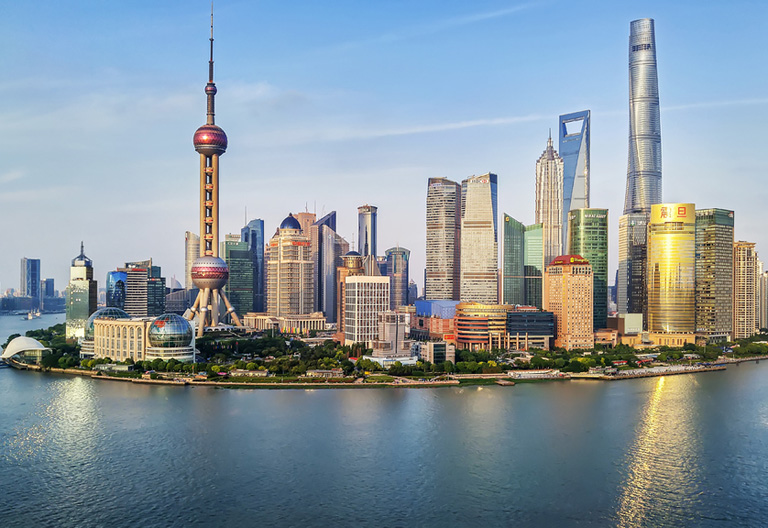
Shanghai / Lhasa
7 Days Classic Shanghai Tibet Highlights Tour
Highlights: The Bund, Yuyuan Garden, Potala Palace, Sera Monastery
-

Shanghai / Lhasa
8 Days Lifetime Tibet Train Tour from Shanghai
Highlights: Yu Garden, Qinghai Tibet Railway, Potala Palace, Jokhang Temple
-

Shanghai / Lhasa / Shigatse / Mount Everest / Lhasa
11 Days Shanghai Lhasa Everest Impression Tour
Highlights: The Bund, Potala Palace, Yamdrok Lake, Mount Everest




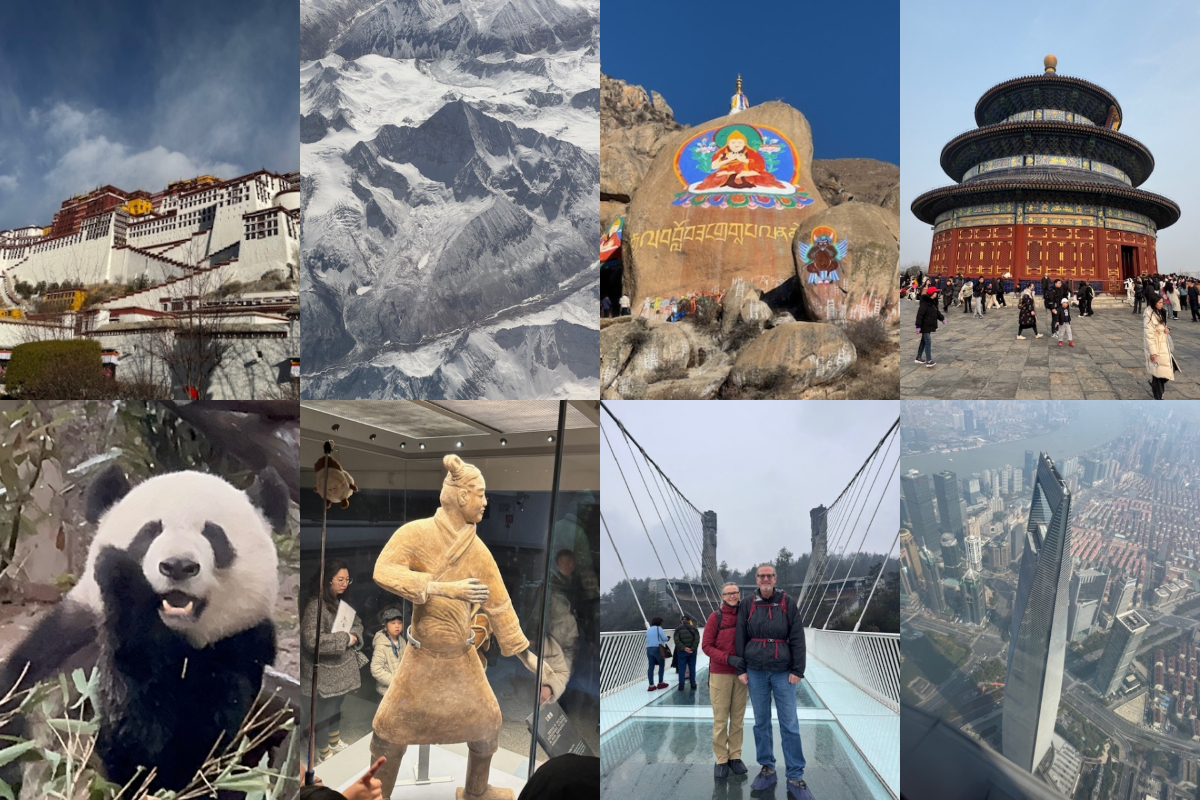

 Karen
Karen Wonder
Wonder Jack
Jack Rita
Rita Johnson
Johnson Vivien
Vivien Wing
Wing Ariel
Ariel Leo
Leo Tracy
Tracy Evelyn
Evelyn April
April Phoebe
Phoebe Kelly
Kelly Shirley
Shirley Reya
Reya Juliet
Juliet Elk
Elk Felix
Felix Sean
Sean